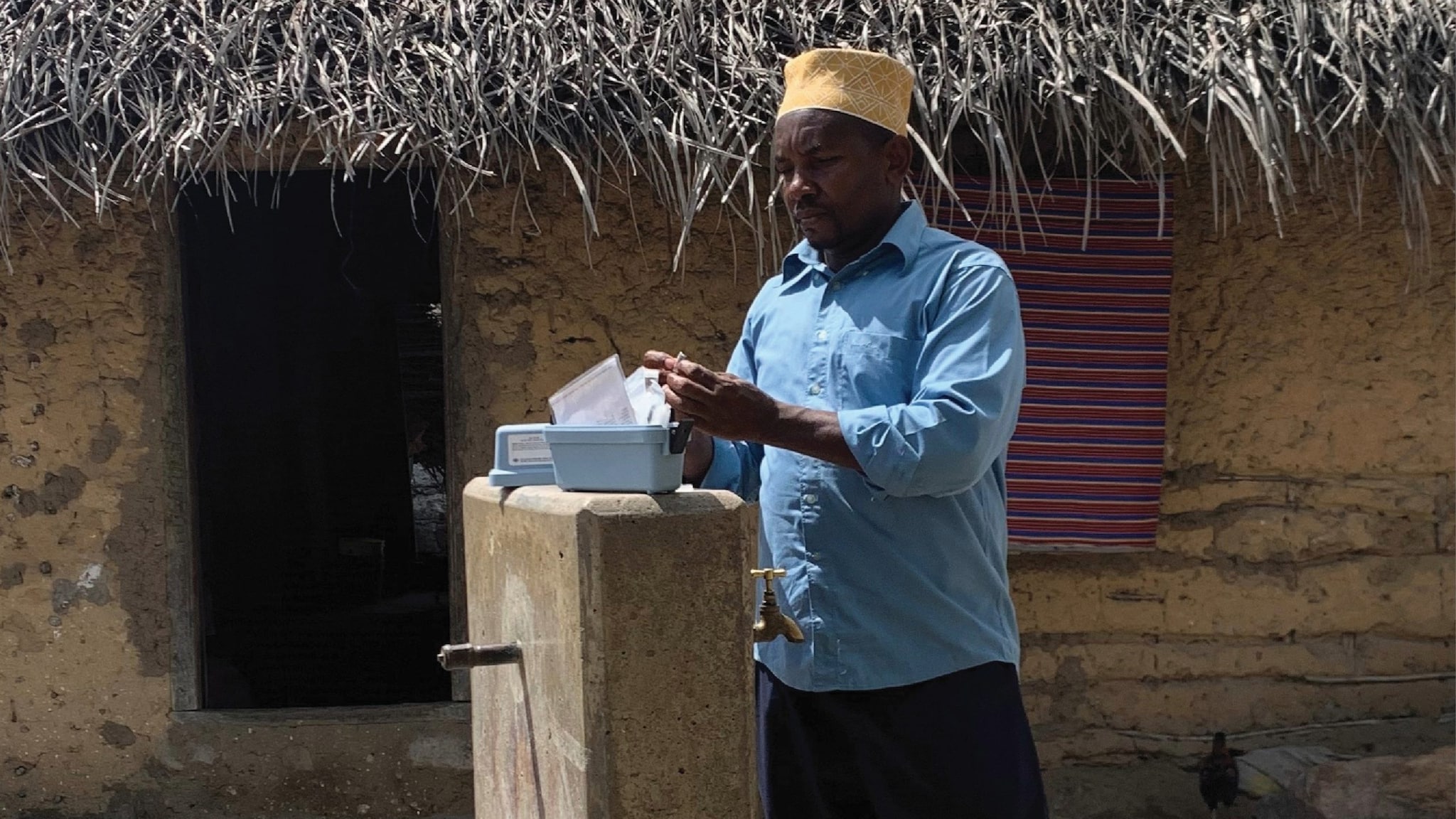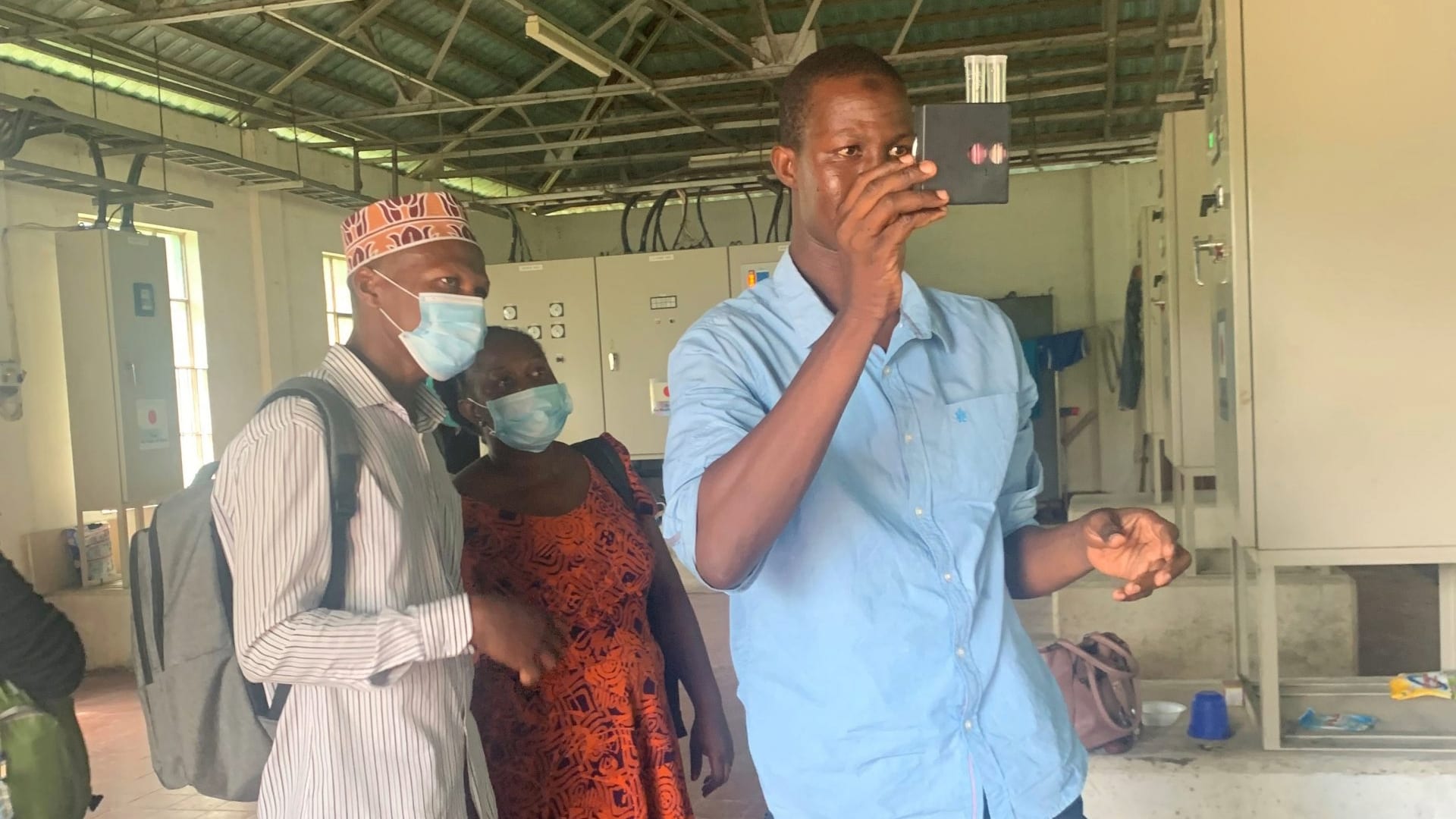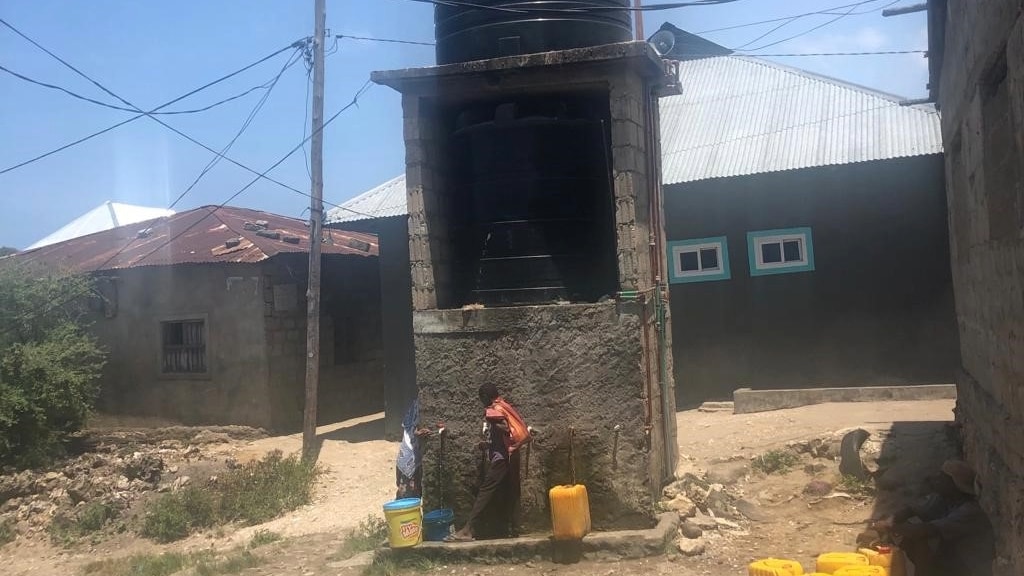At a glance
- Zanzibar faces significant water, sanitation, and hygiene (WASH) challenges, leading to cholera transmission risks.
- CDC helped Zanzibar improve water access and quality by monitoring water quality and bulk chlorination, leading to improved water quality and decreased cholera cases.
- With 95 percent of sites now treating water adequately, CDC plans to sustain and expand these efforts, supporting Zanzibar's goal of cholera elimination and broader WASH improvements.
Addressing Water, Sanitation, and Hygiene Challenges in Zanzibar

Zanzibar, a region of the United Republic of Tanzania, faces water, sanitation, and hygiene (WASH) challenges. Adequate access to sanitation facilities and clean drinking water remains an issue, increasing the risk of cholera transmission. Nearly 30% of people living in peri-urban areas, areas located immediately outside urban cities with rural characteristics, have inadequate WASH services and facilities.
CDC, UNICEF, and the Ministry of Health of Zanzibar (MoHSWEGC-Z) work on projects that improve access to safe water. Projects include monitoring water quality and bulk chlorination of stored water in urban and peri-urban regions to help decrease cholera. Bulk chlorination is the process of disinfecting large amounts of water, often at point of collection, to make it safe to drink or use for or other purposes.
Cholera is a preventable, WASH-related, diarrheal illness often caused by ingesting food or water contaminated with Vibrio cholerae bacteria. Past studies found 17 major outbreaks of cholera in Zanzibar between 1978 to 2008. In 2019, the Government of Zanzibar launched the Cholera Comprehensive Elimination Plan (ZACCEP) with the aim of making Zanzibar cholera free by 2028. The plan focuses on three pillars to help prevent and control cholera. To help end the transmission of cholera in Zanzibar, CDC collaborates with the Government of Zanzibar and UNICEF to design and implement interventions that align with ZACCEP's objectives.
- Establishment: Establish an environment that includes surveillance, capacity, monitoring and evaluation, risk assessment, and resource mobilization.
- Prevention: Increase the effectiveness of prevention services in water supply, sanitation infrastructure, social and behavior change communication, and cholera vaccination.
- Response: Strengthen response capacity by improving case management and surveillance during outbreaks including logistics.
Projects like the one CDC developed to improve drinking water quality and support ongoing monitoring, establish sustainable public health interventions and long-lasting WASH improvements in Zanzibar that will also prevent cholera.
Piped Network Water Quality Monitoring

Currently, CDC collaborates with UNICEF, the MoHSWEGC-Z Environmental Health Unit (EHU)and the Zanzibar Water Authority (ZAWA) to improve water quality monitoring of water distributed by ZAWA through the piped water network. Although parts of Zanzibar are covered with a piped water network, not all parts of the system are chlorinated to ensure the water is safe to use.
CDC's role was to create a water quality monitoring and evaluation system for the project so that water quality data was collected, collated, analyzed, and shared with all stakeholders. During November and December 2021 visits, CDC WASH engineer Anu Rajasingham and epidemiologist Colleen Hardy, worked with the partners to map all ZAWA distribution tanks which chlorinate water, storage tanks that do not have chlorination facilities, and water truck filling points.
Since the project's launch in 2021, areas of the piped network that are chlorinated have been routinely monitored to ensure adequate water treatment. Free residual chlorine (FRC), an indicator for whether there is chlorine available to disinfect or inactivate disease-causing organisms, is tested weekly at 45 sampling locations on the piped network. Results are collected using the monitoring and evaluation platform CDC created, data is summarized and mapped weekly, and shared with all partners. ZAWA uses the information to improve the chlorination levels in the piped network.
Since the system's creation, data have highlighted when treatment tanks are not working, potential pipeline breaks, and staffing challenges. This in turn, has allowed ZAWA to take corrective actions and improve the water being supplied to cholera endemic areas. This piped network and water quality monitoring system supports the second pillar of the ZACCEP while building capacity and improving Zanzibar's access to safe water.
Bulk Chlorination of Stored Water

In addition to water quality monitoring, CDC collaborates with UNICEF and the EHU on a bulk chlorination project. Launched in January 2021, the project works to treat water stored in large storage tanks (>= 1,000 liters) in five districts of Zanzibar that are considered cholera hotspots. The bulk chlorination project improves water quality by chlorinating water at the point of collection, where households go to collect water. Activities have included mapping over 1,000 water vendors and institutions such as schools and healthcare facilities that store water in bulk, as well as distributing chlorine tablets and training nearly 500 vendors and institutions on how to use them properly. These vendors and institutions primarily use groundwater sources such as boreholes to fill their tanks.
CDC's role was again to create a water quality monitoring and evaluation system for the project so that water quality data is collected, collated, analyzed, and shared with all stakeholders. CDC created a bulk chlorination monitoring system where environmental health staff monitor water use and treatment, something that was not previously done. CDC also trained the EHU to analyze and summarize data. Every week environmental health officers visit bulk chlorination sites and test for free residual chlorine to ensure treatment is ongoing and after reviewing data corrective actions are taken.
The last six months of monitoring have been completed with promising results. As of February 2022, 95% of locations had detectable levels of chlorine, indicating that the water had been treated. This indicates that vendors and institutions targeted by this project are treating their water at the recommended levels.
Future of Water Quality Monitoring Work in Zanzibar
Since 1978, cholera outbreaks have repeatedly affected Zanzibar, posing a public health, economic and social development threat to the islands. Recent evaluations showed 66% of vendors and institutions where water was tested had appropriate levels of free residual chlorine.
CDC plans to continue to support the water quality monitoring project of the piped network and increase sustainability of chlorine tablet use among the bulk chlorination water vendors and institutions. Ensuring sustainable and equitable access to safe drinking water requires a comprehensive WASH package. Engaging and supporting the ongoing Zanzibar Comprehensive Cholera Elimination Plan demonstrates CDC's commitment to improving the health of Zanzibar through providing safe water.
